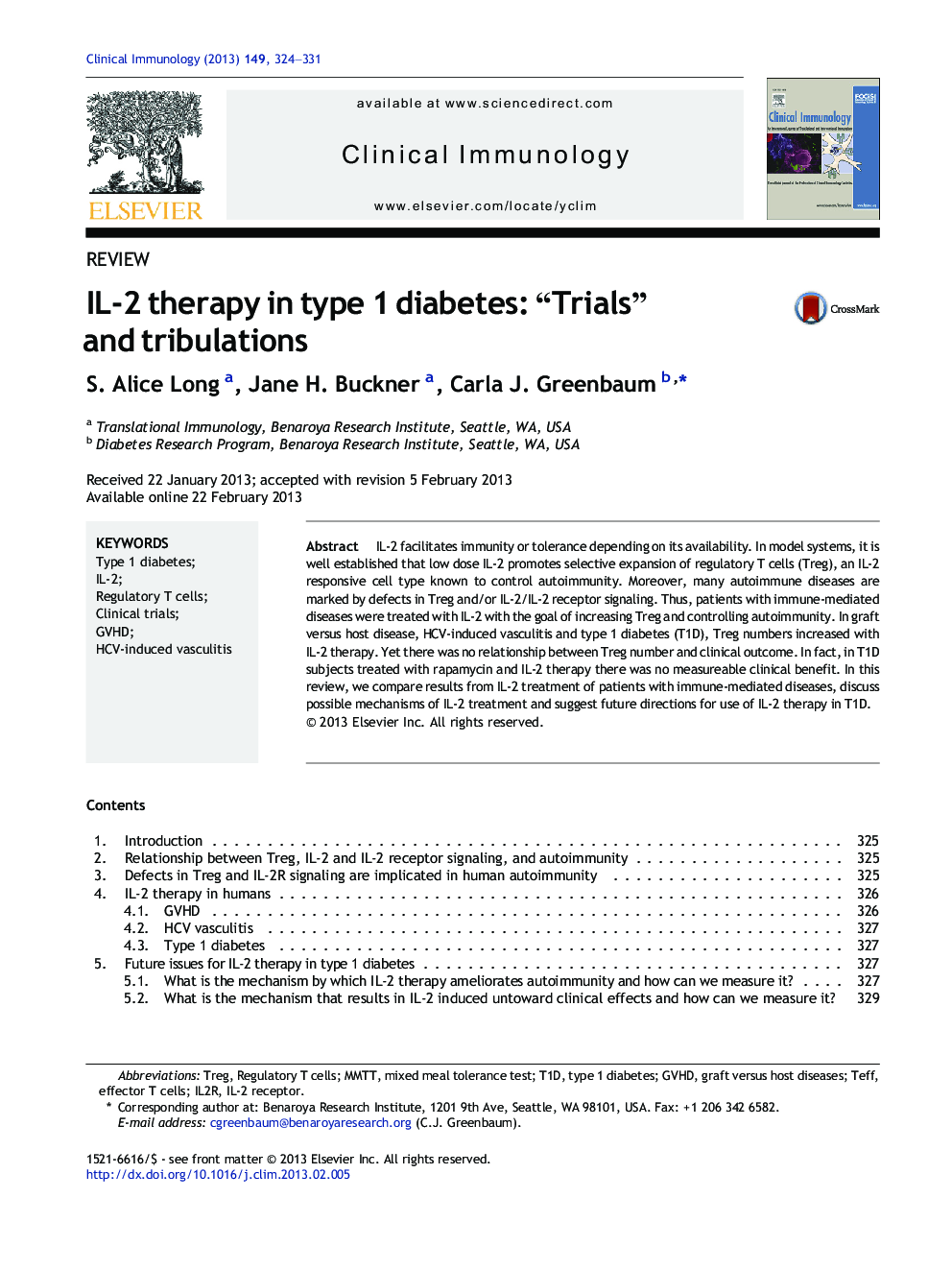| Article ID | Journal | Published Year | Pages | File Type |
|---|---|---|---|---|
| 3256937 | Clinical Immunology | 2013 | 8 Pages |
IL-2 facilitates immunity or tolerance depending on its availability. In model systems, it is well established that low dose IL-2 promotes selective expansion of regulatory T cells (Treg), an IL-2 responsive cell type known to control autoimmunity. Moreover, many autoimmune diseases are marked by defects in Treg and/or IL-2/IL-2 receptor signaling. Thus, patients with immune-mediated diseases were treated with IL-2 with the goal of increasing Treg and controlling autoimmunity. In graft versus host disease, HCV-induced vasculitis and type 1 diabetes (T1D), Treg numbers increased with IL-2 therapy. Yet there was no relationship between Treg number and clinical outcome. In fact, in T1D subjects treated with rapamycin and IL-2 therapy there was no measureable clinical benefit. In this review, we compare results from IL-2 treatment of patients with immune-mediated diseases, discuss possible mechanisms of IL-2 treatment and suggest future directions for use of IL-2 therapy in T1D.
► Pre-clinical data suggest that low dose IL-2 drives tolerance via Treg activation. ► The IL-2/IL-2R axis is impaired in T1D. ► We compare IL-2 therapy in patients with immune-mediated diseases. ► Treg increased in IL-2 treated patients regardless of clinical outcome. ► We discuss issues to consider for future use of IL-2 in T1D.
